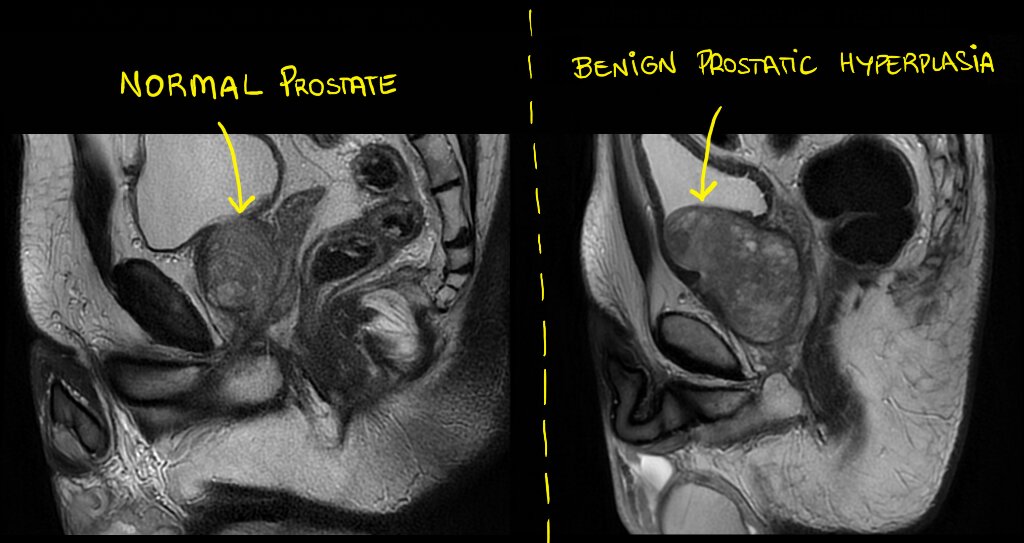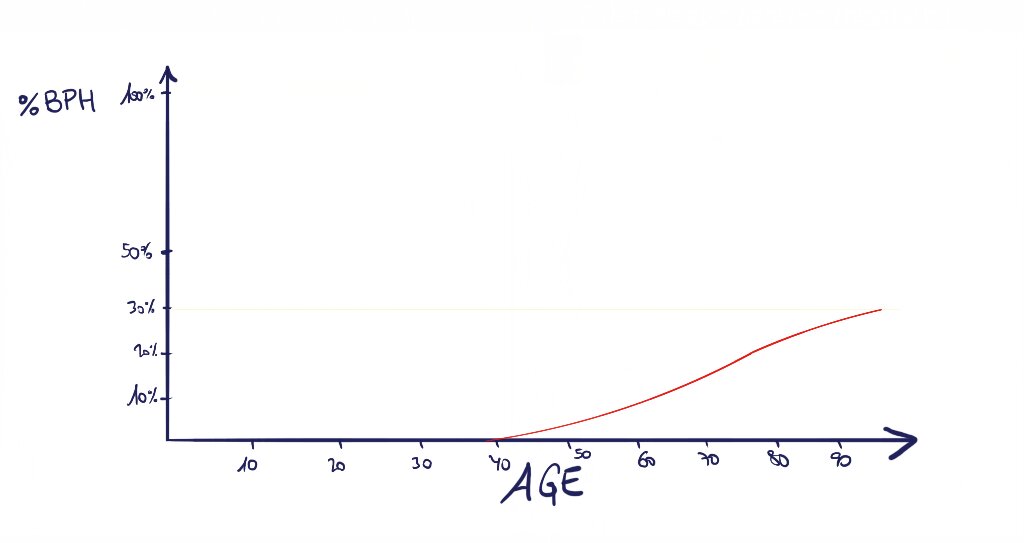Benign prostatic hyperplasia is an abnormal growth of the prostate. It is a condition much more frequent than prostate cancer, and it causes similar symptoms. We can call it BPH, for simplicity.
What is benign prostatic hyperplasia?
It means prostatic enlargement. Your prostate becomes larger than normal (the normal prostate volume is around 25 cc., like a walnut).
When we grow older, the effect of testosterone during our life makes our prostate grow slowly but constantly.
Because it grows so much, it starts compressing the urethra, the duct we use to pee. This causes symptoms like:
- you can’t start urinating
- you can’t empty your bladder completely
- sometimes there is pain while peeing (we call it dysuria)
- urinary infections (which are unfrequent in men otherwise)
These symptoms are the same as those of prostate cancer.

What causes BPH?
Age
The most important factor, BPH is strongly associated with age. At age 45, 3% of men suffer BPH. However, if we check again by the time they are 80, 25% of them will have BPH.

Hormones
Testosterone makes the prostate keep growing. So, the more testosterone, the higher the chances of HBP.
Diet
There are several studies about diet and BPH, but the results are not clear.
What we do know is that smoking is bad for prostatic enlargement.
As for alcohol, the results are surprising: a moderate consumption makes it less likely to suffer benign prostatic hyperplasia. So, you can keep those few beers for now.
Can benign prostatic hyperplasia become cancer?
No, BPH is a benign disease and it doesn’t cause cancer. Of course, you can have both BPH and cancer (bad luck), but one doesn’t cause the other.
How do I know if I have BPH?
First, you need to have symptoms. If you do, you’ll go to the doctor, where they will rule out other conditions, such as prostate cancer.
The first test is usually a digital rectal exam, which can detect some hard nodes (which can be cancer).
A blood test will show your PSA value, which will be high in patients with BPH.
If there is a high suspicion of cancer, you’ll need other tests like an MRI, transrectal ultrasound or a biopsy. These tests are very accurate detecting cancer, but not everybody needs them.
Can BPH be cured?
The most effective way to treat BPH is the Transurethral Resection of the Prostate (TURP). During a TURP, the urologist inserts a device through the urethra and resects the prostate around it, decompressing it. This improves the symptoms greatly in most cases.
You can read more about this procedure here: Transurethral Resection of the Prostate (TURP)
Leave a Reply